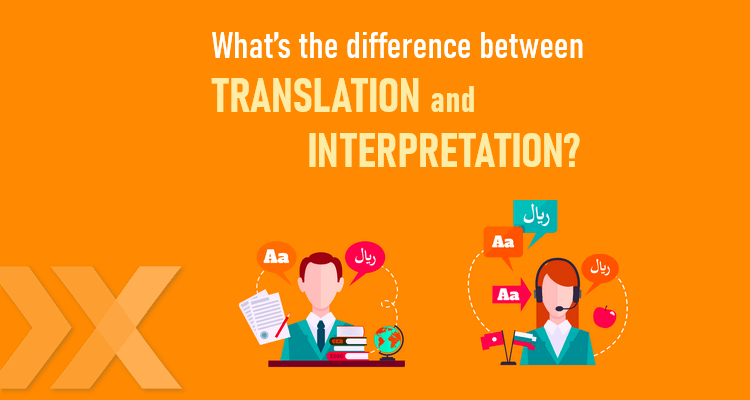
Top 5 essential interpreting skills every interpreter needs to master
Interpreting is a dynamic and demanding profession that goes beyond simply translating words. It requires a range of specialized interpreting skills to bridge language barriers effectively, ensuring communication is accurate and culturally sensitive. From mastering both languages to thinking quickly on your feet, here are the five key interpreting skills every professional must develop to succeed in their role.
Mastery of language
At the core of every great interpreter’s ability is language proficiency. Without a strong command of both the source and target languages, an interpreter cannot effectively convey the message. Here’s why mastering language is an essential interpreting skill:
- Fluency in both languages: Being fluent in both the source and target languages is the basic requirement for interpreters. Fluency goes beyond memorizing vocabulary—it involves understanding the subtle meanings behind words, knowing how to use them in different contexts, and grasping nuances that could influence the meaning. This includes being familiar with idiomatic expressions, slang, and regional dialects that may not be directly translatable but are crucial to understanding the speaker’s intent.
- Specialized terminology: Interpreters working in fields like law, medicine, or technology need to be familiar with industry-specific terminology. A medical interpreter, for example, must understand both the technical language of healthcare and the cultural implications of medical treatments. Mastering specialized vocabulary ensures the interpreter can offer accurate translations in high-stakes settings like courtrooms or hospitals.

- Adaptability to different registers: Interpreters must be able to navigate between various language registers—formal, informal, academic, casual, etc. They need to understand how to shift between these tones and forms of communication based on the context. For example, interpreting a formal business meeting requires a different tone and choice of words compared to interpreting a casual conversation in a social setting.
- Cultural context and sensitivity: Language is shaped by culture. Effective interpreters understand how certain words or phrases might be interpreted differently based on cultural norms. For example, humor, sarcasm, and metaphor may not translate easily across cultures and must be adjusted for accuracy. An interpreter with strong cultural knowledge ensures that the message resonates as intended while remaining respectful and clear.
Mastering the languages you interpret between is the foundation of providing clear, accurate, and culturally relevant translations. An interpreter’s deep knowledge of both languages—along with their ability to adapt to different contexts and registers—ensures that the message is conveyed with precision and clarity. A strong grasp of specialized terminology and cultural nuances helps interpreters navigate even the most complex situations, ensuring that every conversation is understood in its full depth and meaning.
Read more: Unveiling the critical role of medical interpreters in healthcare
Sharp listening abilities
One of the most crucial interpreting skills is the ability to listen actively and process information quickly. Interpreting isn’t just about hearing words—it’s about understanding the deeper meaning behind those words. Here’s why sharp listening is a must-have skill:
- Active listening: Interpreting requires full engagement with the speaker, meaning the interpreter must actively listen, not just passively hear. This involves focusing not only on the words being spoken but also on the tone, emotion, and intention behind the message. Active listening helps the interpreter ensure that they capture the true meaning of what’s being said and maintain the integrity of the message during translation.
- Comprehending accents and dialects: Not all speakers use the same pronunciation, tone, or pace. An interpreter must be able to understand different accents, speech patterns, and dialects. This is particularly important when working with diverse populations where the source language may include regional slang or unique pronunciations that are critical to interpreting the message correctly. The interpreter must stay attuned to these variations and adjust their interpretation accordingly.

- Ability to prioritize key information: Sometimes, an interpreter has to make quick decisions on what information is vital and what is secondary. Especially in fast-paced or lengthy discussions, an interpreter must discern key messages from supporting details. By focusing on the core ideas, they can maintain the flow of conversation without overwhelming the listener with excessive detail, ensuring that the essential points are conveyed in a clear and concise manner.
- Responding to changes in pace or interruptions: Conversations often shift in speed, tone, or subject, and an interpreter must be quick to adapt to these changes. They also have to manage interruptions—whether from other speakers or technical difficulties—without losing track of the message. This requires keen attention and adaptability, allowing the interpreter to pick up where they left off and continue to interpret effectively in real-time.
Excellent listening skills are indispensable for interpreters. Active listening allows interpreters to capture the tone, context, and subtle meaning of the message. By tuning into accents, dialects, and speaker variations, interpreters ensure they don’t miss any critical details. Additionally, their ability to prioritize key information and adapt to changing speeds and interruptions ensures a smooth flow of communication and accurate delivery of messages in real-time.
Confidence in public speaking
Interpreting requires more than just translating words—it involves delivering the message with confidence and clarity. Strong public speaking abilities are essential to ensure the translation is impactful and effective. Here’s why this is an important interpreting skill:
- Clear and concise delivery: An interpreter must speak clearly and audibly to ensure that their translation is understood by the audience. This requires good vocal projection, articulation, and pacing. If the interpreter speaks too quickly or too softly, the audience may miss key points of the message. Delivering the translation in a slow, deliberate, and clear manner ensures that all information is communicated accurately.
- Confidence under pressure: Interpreting is often done in real-time, with little room for hesitation or mistakes. An interpreter must maintain confidence under pressure, especially in high-stakes situations such as conferences, diplomatic meetings, or medical emergencies. Confidence allows interpreters to trust in their abilities, think on their feet, and deliver interpretations smoothly and accurately, even when the conversation moves quickly or becomes complex.

- Engagement with the audience: Public speaking also involves engaging the audience and ensuring that the message is effectively communicated. Interpreters need to be mindful of the tone of their voice, the pace of their speech, and their body language. Engaging the audience helps the interpreter ensure that they’re being understood, creating a more effective communication exchange. When interpreting for large groups, clear and confident delivery helps maintain the audience’s focus and ensures they are following the message without difficulty.
- Effective non-verbal communication: An interpreter’s body language, facial expressions, and posture play a role in how the message is received. For example, when interpreting emotions or complex ideas, an interpreter might use their expressions or gestures to convey additional meaning. Being mindful of these non-verbal cues helps the interpreter ensure the message is not only accurate but also emotionally resonant and understood by the audience.
Public speaking is an essential skill for any interpreter. Delivering a translation with confidence and clarity helps ensure the audience grasps the message in the intended manner. An interpreter’s ability to manage their tone, pace, and body language helps build trust with the audience and ensures the interpretation is both clear and engaging. Confidence under pressure, combined with effective public speaking techniques, is crucial to providing accurate translations in high-stakes environments.
Read more: Avoiding 8 common localization mistakes: Essential steps for success in global markets
Deep cultural understanding
To ensure accurate interpretations, interpreters must possess a solid understanding of cultural context. Cultural competence is a key interpreting skill that helps avoid misunderstandings and ensures that the message is not only linguistically accurate but culturally appropriate. Here’s why cultural understanding is crucial:
- Avoiding miscommunication: Words often carry different meanings in different cultures, and an interpreter must know how to navigate these differences. For example, certain words or phrases may be culturally sensitive or even offensive in another context. A skilled interpreter recognizes when to modify language choices to reflect the appropriate cultural norms and avoid causing offense or confusion.
- Understanding cultural context: An interpreter must be aware of the social and cultural context in which a conversation takes place. For example, what might be considered polite or respectful in one culture could be perceived differently in another. This knowledge allows interpreters to adjust their translations to fit the expectations and norms of the target culture, ensuring the message is conveyed with the right tone and respect.

- Bridging cultural gaps: Interpreters are often tasked with helping two parties from different cultural backgrounds understand one another. In these instances, they act as cultural mediators, not just linguistic translators. By understanding both cultures, interpreters help create a smoother exchange, facilitating better communication and understanding. This cultural mediation enhances relationships and ensures more successful outcomes in business, diplomatic, or social settings.
- Ensuring contextual relevance: A deep cultural understanding allows interpreters to adapt their translations based on cultural references and context. For example, an interpreter might be required to explain or clarify certain culturally specific references during a translation, ensuring that both parties understand the meaning in the context of their respective cultures.
Cultural competence is vital to accurate interpretation. Understanding the cultural context behind words and phrases ensures that translations are respectful and meaningful. An interpreter’s cultural awareness allows them to bridge the gap between different traditions, ensuring the message is not only linguistically accurate but also culturally sensitive. By recognizing the nuances of cultural differences, interpreters can create more effective and respectful communication across language barriers.
Quick thinking and analytical insight
Interpreting is a fast-paced job that requires critical thinking and the ability to make decisions quickly. Quick thinking is an indispensable interpreting skill, especially when faced with complex or unexpected situations. Here’s why it’s so important:
- On-the-spot decision making: Interpreting requires the ability to think and act quickly, especially when unexpected challenges arise. An interpreter might face unfamiliar terminology, complex ideas, or ambiguous phrasing. The ability to analyze these challenges swiftly and come up with a clear, accurate translation is vital. Quick thinking allows interpreters to maintain the flow of conversation and avoid misunderstandings.
- Analyzing context in real-time: An interpreter must continuously assess the context of the conversation to make the best choices in translation. Whether it’s a change in tone, a shift in topic, or a new speaker entering the conversation, quick analysis ensures that the interpreter delivers a translation that remains relevant and accurate within the shifting context.

- Problem-solving skills: Interpreting can present numerous challenges, such as gaps in knowledge or sudden shifts in the conversation. Interpreters must remain calm under pressure and find effective solutions to these problems. Whether it involves asking for clarification, using circumlocution to explain a difficult term, or shifting their approach to a translation, problem-solving ensures that the interpretation is accurate and clear.
- Remaining calm under pressure: Interpreting can be intense, especially in high-stress environments such as conferences, legal proceedings, or medical emergencies. The ability to remain composed allows the interpreter to maintain focus and deliver an accurate interpretation, regardless of external pressures. This level-headedness is essential to providing high-quality service and ensuring effective communication.
Quick thinking and analytical skills are crucial for interpreters to stay on top of fast-moving conversations and ensure accurate translations. An interpreter’s ability to process complex information quickly, solve problems in real-time, and remain calm under pressure enables them to manage challenging situations effectively. These skills ensure that an interpreter can deliver a seamless and reliable translation, even when unexpected issues arise, maintaining the integrity and clarity of the message throughout.
All in all, being a successful interpreter is about more than just language fluency—it’s about mastering a range of interpreting skills that allow you to bridge communication gaps effectively. From language proficiency and sharp listening to public speaking confidence, cultural understanding, and quick thinking, each of these skills plays a vital role in ensuring accurate, meaningful translations
At Lotus Localize, we understand the value of these skills and are committed to providing top-tier translation and interpreting services that bridge communication gaps and create connections.
If you have any questions or need assistance with interpretation services: escort interpreting, exhibition interpretation, conference interpretation, remote interpretation, cabin interpretation,… please contact Lotus Localize immediately at 0866 224 968 or visit the website: lotus-localize.com for advice on the best solutions!
Contact us today to learn how we can support your next translation project and help you achieve global success!
QUALITY PROMISE
Lotus Localize offers consistent, high-quality service delivery in all customer engagements. Our in-house translators and staff adhere to well-established business processes, allowing us to communicate properly, deliver on time, and surpass client expectations.













